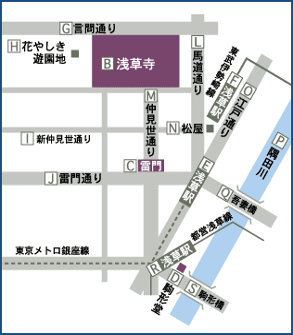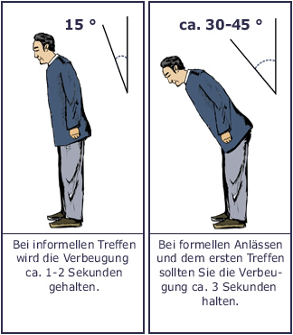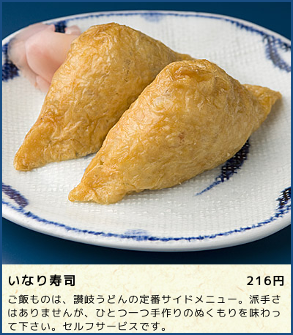My services will open doors and contribute to the fact that you are taken seriously if you maintain or seek business relationships with Japanese companies.


In Japan
The cultural differences between Europe and Japan are significant. Do you have Japanese customers, suppliers or business partners? Are you facing a longer stay abroad in Japan?
In example you get a Japanese site plan as seen in the adjacent figure (see figure Asakusa Kanon Senso-ji Tempel map) and need explanations about how to deal with it?
In all these cases I can give you valuable support in terms of individual counseling, answering questions about local characteristics or explain information for on-site mobility.
Although Japanese show some tolerance in dealing with their customs and manners a minimum of Japanese etiquette should be taken into account. You receive advice for text translations as well as on etiquette, business etiquette, business attire and proper behavior with clients or business partners.
On your request I process all your japanese language correspondence, manage your contacts and gain new contacts for you. This includes topics such as a written communication with business customers or any written doings of routine tasks such as order confirmation or customs declarations.
You have other jobs to do related to the German-Japanese language combination? I perform web searches for you or take care on your behalf to communicate with Japanese authorities. I support you with hotel bookings, restaurant reservations or meeting arrangements with business partners.
Manner
The following are examples of important manners in Japan: A polite san is attached at the end of the name. But one will never ever attach san at his own name.
Pat on the back, greeting kiss, even shaking hands are not common. Only in rare situations japanese offer handshaking. Correctly is a slight bow with a straight back.

The one who is lower in hierarchy, bows even deeper. Therefore older ones stand above younger one, guests above hosts, men above women. In business most of the time only the seller bows.
For non-Japanese having a medium bow is the best solution. Never be late – but also not too early. To point to one person, one may just take the whole hand and not the fingers.
Culinary
When it comes to Japanese cuisine, one often thinks of sushi — raw fish. Nevertheless it plays in everyday cooking a subordinate role. Rice is the staple food of every Japanese. Furthermore, a lot of vegetables and fish, but also meat or tofu (see Figure Inari Sushi) eaten. Other basics are dashi (broth from fish, mushrooms, etc.), shōyu (soy sauce), mirin (Kochsake), sake (rice wine), miso (bean paste) u.v.m.
Even pasta is very common — be it as a soup or as part of a menu, be it hot or cold. Typical Japanese noodles are udon (thick white wheat noodles) that you can cook or roast, soups (thin vermicelli) and soba (thin white or brown buckwheat noodles).

Charge
The calculation of the costs of our services provided to you are based on effort. In doing so, you will be billed for the work time I have provided to perform your order.
Detailed information about charging can be found under the menu item Order.
Interpreter
A certified translation can only be made by a sworn translator.
I do not offer any interpreter services. Hence I can not accept any orders which requests the transfer of spoken text from a source language to a target language.
Furuno-Schiele Translations © 2024 | info@Furuno-Schiele.de | Imprint | Data protection